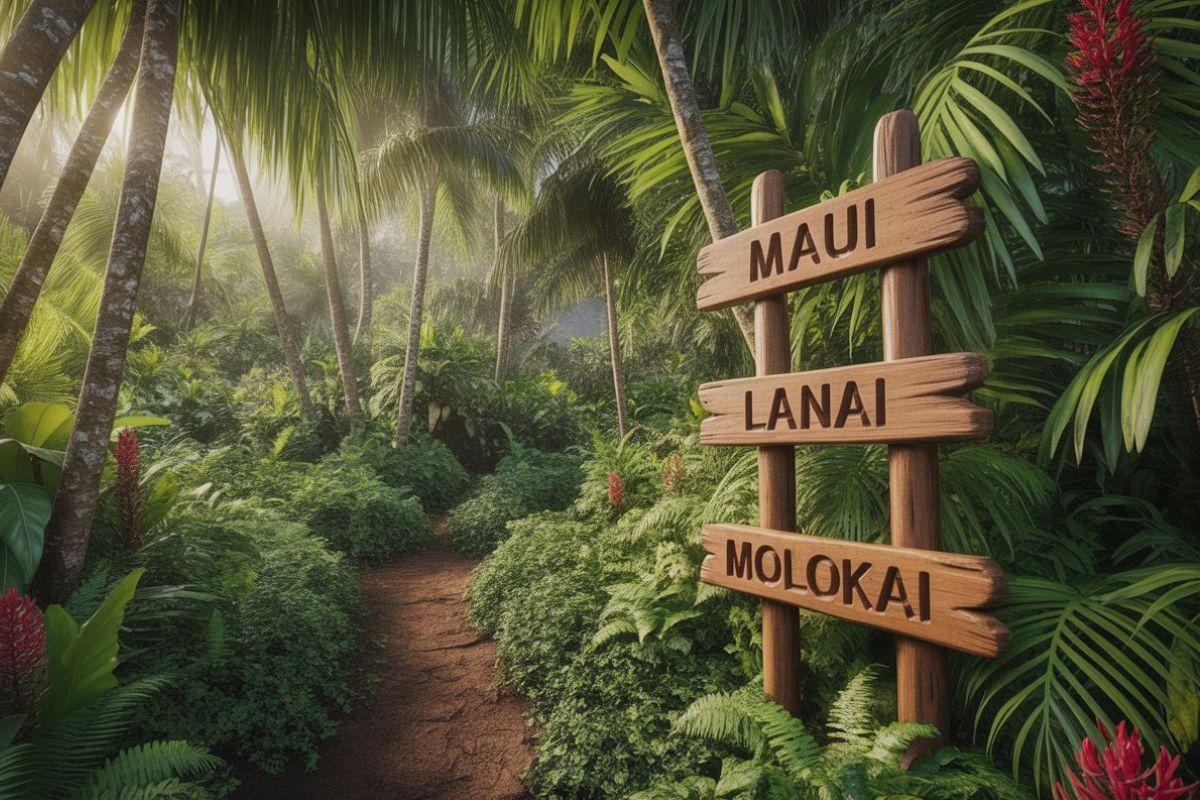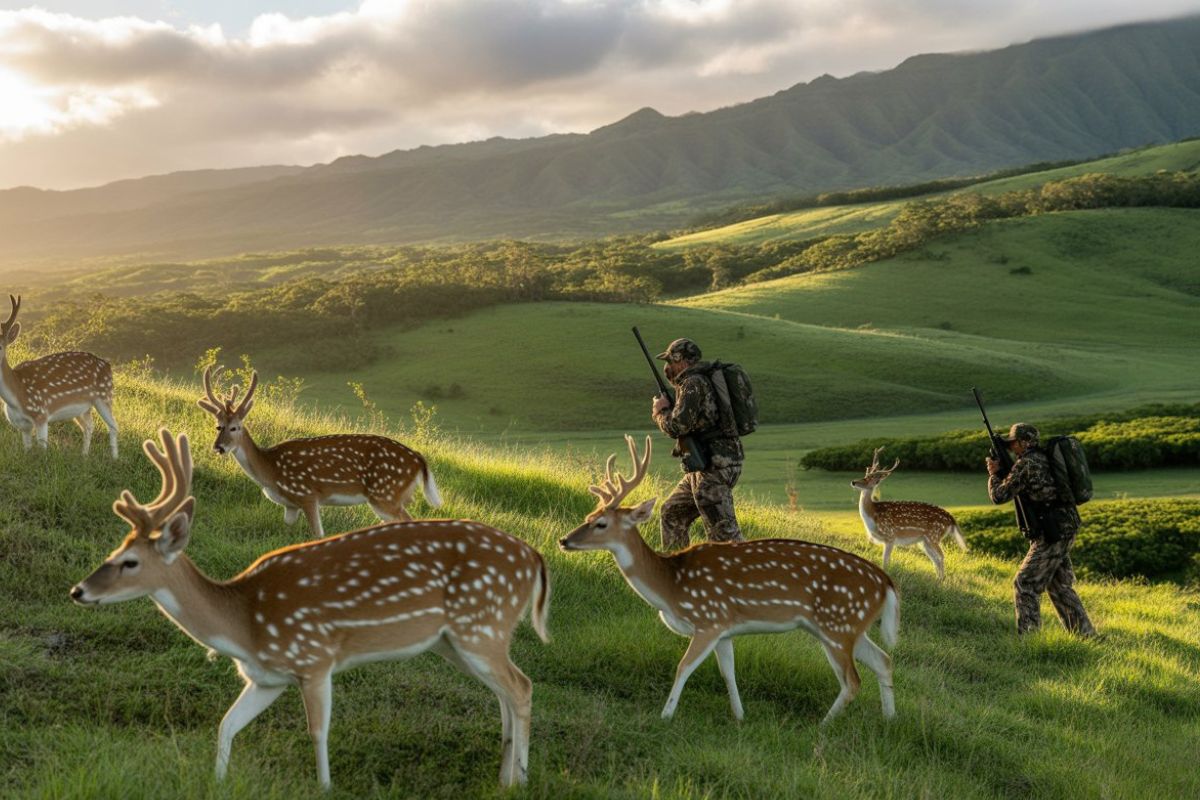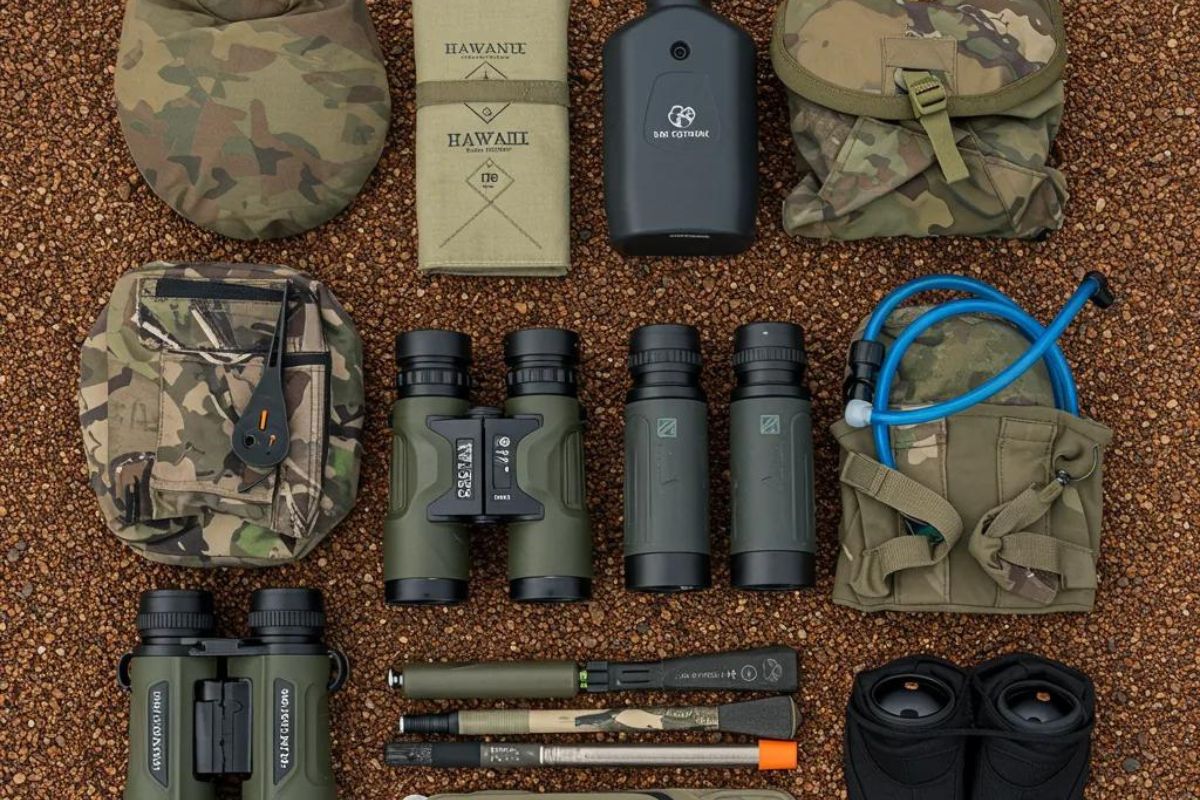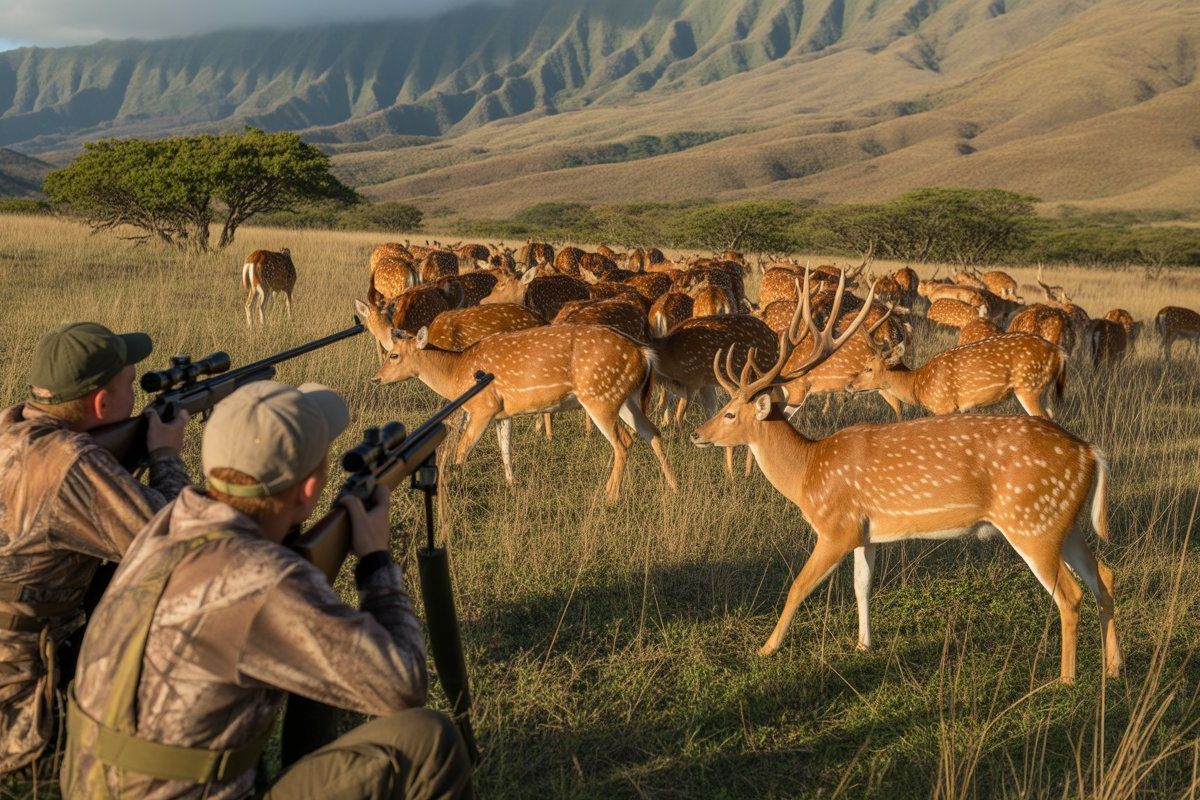Axis deer hunting in Hawaii offers a unique big-game experience that blends steep tropical terrain, hard-fighting chital (Axis Deer), and a mix of public and private land opportunities. This guide walks you step-by-step through the legal requirements, island-by-island selection, tactical methods, gear tailored to Hawaiian conditions, and post-hunt processing so you can plan a legal, ethical, and successful hunt. Many hunters underestimate permit steps, island access rules, travel logistics, and tropical meat-handling needs; solving those issues up front improves safety and outcomes. In this article you’ll find concise licensing guidance, a practical island comparison, a clear guided vs self-guided decision framework, actionable gear and conditioning lists, conservation context, and post-hunt meat and trophy care. Keywords like hawaii axis deer hunting, axis deer hunting permits Hawaii, and axis deer hunting gear list are woven through the advice to help you find the right resources and prepare effectively. Read on to map permits to islands, budget for guides and processors, choose tactics for spot-and-stalk or archery, and protect meat quality in warm climates.
What Are the Hawaii Axis Deer Hunting Regulations You Need to Know?

Hawaii’s axis deer hunting regulations define who can hunt, what documentation is required, and which land types allow take; understanding these rules prevents legal issues and guides planning. The regulatory framework is enforced by the state wildlife authority and separates resident and non-resident licenses, hunter education requirements, and island-specific access rules such as lotteries or tags for certain public areas. Complying with licensing and tagging ensures ethical harvest reporting and reduces fines, while following island rules preserves access for future hunters. Below is a focused table summarizing typical license types, requirements, and issuing authority to clarify what you need before arriving.
What Licenses and Permits Are Required for Axis Deer Hunting in Hawaii?

Hunters must hold a valid state hunting license and any required tags or permits; residents and non-residents face different fees and documentation standards. Licenses usually require identification, proof of residency for resident rates, and completion of hunter education where applicable; non-residents should prepare passport or ID and allocate extra time for permit processing. Apply through the state wildlife authority well before travel dates and carry printed or digital proof while hunting. A quick checklist helps ensure you bring the right documents and confirmations to the field.
Related Article: Top 5 Things to Know Before Applying for a Hawaii Hunting License
This table summarizes common license and permit types and emphasizes checking current state guidance for exact fees and application windows. Knowing which license covers private-land versus public-land hunts helps you plan travel and secure access early.
How Does Hunter Education Affect Your Hawaii Hunting License?
Hunter education is a qualifying requirement for many applicants and is a cornerstone of licensing—completing an approved course demonstrates competence in safe firearms and ethical hunting practices. Some states have reciprocity for hunter education certifications, so bringing proof of an out-of-state course can speed licensing; if reciprocity does not apply you must complete the state-approved course. Hunter education typically covers firearm safety, wildlife regulations, and ethical shot placement, which directly improves field outcomes and reduces accidents. Keep your certification documentation accessible during licensing and while hunting to avoid administrative delays and to demonstrate compliance to landowners or guides.
What Are the Island-Specific Hunting Rules for Maui, Lanai, and Molokai?

Island-level rules vary: some islands use permit lotteries for public-land access, others are dominated by private ranches with permission-based access, and seasonal notices can change available areas. Check island notices about closed zones, special hunts, or temporary restrictions before planning travel; contacting the local wildlife authority or land managers provides the most current guidance. For islands where lotteries apply, note deadlines and prepare required identification and registration information ahead of time. Awareness of island-specific rules prevents access surprises and helps prioritize islands that match your hunt style—public-land DIY, guided private-ranch hunts, or a mix of both.
When Is the Official Axis Deer Hunting Season in Hawaii?

Axis deer can be hunted year-round on many private lands, while public-land seasons and specific hunts follow island and management schedules that may open or close areas seasonally. Trophy hunters often target months tied to increased rut activity when bucks are more mobile and visible, while meat-focused hunts prioritize times when weather aids tracking and transport. Because island microclimates affect movement, consider local seasonal patterns—drier months often improve access and glassing, while wet periods can push deer to lower elevations. Planning around both legal seasons and practical windows increases success and reduces logistical complications.
Which Hawaiian Islands Offer the Best Axis Deer Hunting Experiences?

Choosing an island for your axis deer hunt depends on your goals—trophy pursuit, budget DIY access, or a guided package with logistics handled—and on terrain and deer distribution. Each island offers distinct terrain types, access models, and deer densities that change the hunting tactics and physical demands required. Below is a comparison table designed to help match hunter goals to islands, highlighting terrain, access type, typical deer density, and best seasons for each option. Use this to narrow choices and plan travel and gear specific to island conditions.
This island comparison clarifies how terrain and access shape hunt planning, and it encourages contacting local authorities or outfitters for up-to-date access notices. Matching island characteristics to your method—spot-and-stalk, glass-and-approach, or ambush—reduces wasted travel and increases harvest chances.
Why Is Maui a Top Destination for Axis Deer Hunting?
Maui blends varied terrain—coastal valleys, mid-elevation slopes, and managed private properties—creating diverse hunting scenarios that suit spot-and-stalk and glassing strategies. Hunters often find moderate to high densities in managed zones where private ranches maintain deer populations; access may combine public parcels and permission-based areas. Typical hunt durations range from day trips for focused glassing to multi-day trips that include scouting and overnight hikes, so logistics should include lodging near access points and planning for transport to remote trailheads. Given Maui’s variety, gear that balances agility for slopes and optics for distance scanning increases effectiveness, making it a versatile destination for many hunter profiles.
What Makes Lanai Ideal for Public Land Axis Deer Hunts?
Lanai is known for accessible ridgelines and open country that favor spot-and-stalk tactics, and it offers defined public parcels where hunters can encounter high deer densities. Some public areas use permit systems or lotteries to manage pressure and conservation goals, so prospective hunters should plan registration and permit submissions well in advance. The island’s open terrain rewards glassing and long approaches, and hunters benefit from lightweight loadouts and hydration planning for sun-exposed ridgelines. For DIY hunters seeking public-land experience, Lanai can provide good value and approachable logistics compared with more privately dominated islands.
How Does Molokai Compare for Trophy Axis Deer Hunting?
Molokai’s rugged slopes and pockets of less-pressured habitat create conditions favorable to mature bucks, giving it a reputation among hunters chasing trophy-class antlers. The physical demands are higher due to steep, uneven ground and remote access points, so hunters should plan for increased stamina, conservative shot opportunities, and thorough recovery strategies. Outfitters and some private land opportunities exist that help offset access difficulties, but regardless of approach, expect long glassing sits and extended stalks when targeting trophies. Choosing Molokai for trophy hunting requires matching physical preparation, gear, and timing to the island’s specific challenges.
How Do Public and Private Lands Differ Across These Islands?
Public lands generally allow DIY access with seasonal rules, quotas, or lotteries, while private lands typically require permission or booking through outfitters and often offer higher success rates due to management. Costs differ: public-land hunts minimize access fees but increase the need for scouting, time, and self-sufficiency; private-land or guided hunts often include logistics that cut your on-the-ground planning but add guide fees and package costs. To secure private access, contact land managers or reputable outfitters (generic reference only) and obtain written permission; for public lands, register for lotteries and verify permit windows well in advance. Understanding these differences helps you choose an approach that balances budget, success probability, and the style of hunt you prefer.
How Do Guided and Self-Guided Axis Deer Hunts in Hawaii Compare?

Guided and self-guided hunts differ mainly by logistics, success rates, and upfront costs; guided hunts typically bundle expertise, access, and processing, while self-guided trips require more planning but can reduce direct fees. Guided services can include guides, lodging, meals, and processing, which streamlines the hunt and increases time-on-target efficiency; self-guided hunters must secure permits, transportation, and processors independently. Deciding between options depends on experience, comfort navigating island terrain, and budget—novice hunters or those short on planning time often favor guided packages for convenience. Below is a concise comparison table to weigh typical inclusions, cost ranges, pros, and cons for each service style.
This comparison clarifies trade-offs; when discussing guided options with providers, ask about access permissions, meals, lodging, and whether meat processing or trophy preparation is included to avoid surprise costs.
What Are the Benefits of Guided Axis Deer Hunts in Hawaii?
Axis Deer Hunting in Hawaii guided hunts provide local knowledge of terrain, deer patterns, and access relationships that often increase success and reduce logistical friction, especially on islands dominated by private properties. Guides manage safety, route-finding on steep slopes, and recovery of game, and they can arrange processing and short-term meat care in warm climates—services that are difficult to coordinate on short notice. For hunters traveling from off-island, guides also often handle lodging recommendations and transport logistics, saving time and reducing uncertainty. When vetting guided options, ask what the package includes and which practical services—like meat processing or trophy caping—are covered to avoid surprise costs.
How to Plan a Self-Guided Axis Deer Hunt in Hawaii?
Self-guided hunts require proactive permit acquisition, scouting, transport planning, and pre-arranged processing options; a practical timeline starts 6–8 weeks before travel to secure licenses, island permits, and processor availability. Scouting can be remote: study topography, elevation bands where deer congregate, and access points; arrive early for on-the-ground reconnaissance and to verify access routes. Pack for tropical heat and steep terrain with hydration systems, quick-dry layers, and field-processing supplies so you can cool and transport meat safely. Risk management—telling someone your route, carrying emergency communication, and understanding island weather—keeps DIY hunts safe and successful.
Which Outfitters Offer the Best Axis Deer Hunting Packages?
Rather than naming companies, evaluate outfitters by a checklist of credentials, inclusions, and references to determine which packages match your needs and budget. Key evaluation points include licensing and insurance, client references or testimonials, sample itineraries showing inclusions (guide ratios, lodging, meals), what processing or taxidermy support is offered, and clear cancellation or refund policies. Ask specific questions about success rates for the type of hunt you want (trophy vs meat), what terrain they commonly operate in, and whether they handle transport to processors. Use those evaluation criteria to compare offers and request itemized quotes so you can compare apples-to-apples.
How Much Does an Axis Deer Hunt Cost in Hawaii?
Budgeting for an axis deer hunt involves license fees, travel, lodging, guide fees (if used), and post-hunt services such as processing and trophy shipping; transparent itemizing helps prevent surprise expenses. Typical cost categories include non-resident or resident licenses, ferry or flight to the island, local transport or rental vehicles, guide fees or package rates, meat processing and vacuum packaging, and taxidermy or shipping for trophies. Optional paid services to include in your budget are guide fees, meat processing, taxidermy, and trophy shipping; compare offers from reputable outfitters and local processors to identify the best value. Below is a concise bulleted cost checklist to help you estimate and prioritize expenses.
- Non-resident or resident license fees and island permit costs
- Travel: flights, ferries, and in-island transport or rental vehicles
- Guide fees or package rates when using guided services
- Post-hunt services: meat processing, vacuum sealing, taxidermy, shipping
Comparing listed items from multiple providers and considering off-season travel or group trips are practical strategies to lower per-hunter costs while maintaining quality.
What Essential Gear and Hunting Methods Should You Prepare for Hawaii Axis Deer Hunts?
Essential gear for Hawaii axis deer hunts prioritizes hydration, sun protection, agility for steep slopes, and reliable optics for glassing; selecting the right kit reduces fatigue and improves chances of a clean, ethical harvest. Weapons and calibers should match axis deer size and allow humane shot placement at practical ranges, while optics—binoculars and spotting scopes—are critical for scanning open slopes and ridgelines. Clothing that wicks and dries quickly and boots with good ankle support for wet, uneven ground help maintain mobility and safety. The following gear checklist and method comparisons will guide your equipment choices and help decide whether spot-and-stalk, archery, or rifle hunting fits your skillset and island terrain.
What Is the Recommended Gear List for Axis Deer Hunting in Hawaii?

Pack prioritized essentials first: reliable optics, hydration systems, sun protection, lightweight rain layers, sturdy boots, and field-processing supplies to manage meat in tropical temperatures. Weapon choice should favor calibers suitable for humane kills on deer at typical engagement ranges; bring appropriate ammunition and case protections for travel. Include first-aid, emergency comms, and portable cooling/insulation for rapid meat cooling; airline and transport rules for firearms and processors’ pickup hours require pre-planning. A short “nice-to-have” list includes lightweight game carts for short hauls, gaiters for thorny brush, and backup optics.
Recommended Gear:
1. Optics & Glassing: Binoculars and a spotting scope for long-range detection.
2. Hydration & Clothing: Hydration bladder, quick-dry layers, sun protection, rain shell.
3. Field Processing Kit: Knives, gloves, game bags, cooler or ice packs for cooling.
This prioritized list helps you assemble a mobile, tropical-ready kit that balances safety, meat quality, and mobility for island hunting.
Which Hunting Methods Work Best: Spot and Stalk, Archery, or Rifle?

Spot-and-stalk excels on open slopes and ridgelines where deer are visible at range and approach angles allow concealment; glassing first and planning wind-conscious approaches increases success. Archery requires closer stalking and favors terrain with good cover to close distances; expect higher physical demands and prepare for meticulous recovery planning. Rifle hunting can be effective where terrain permits stable shooting positions and ethical long-range shots, but steep island slopes often favor shorter, controlled approaches. Choose your method based on island terrain, your skill level, and the distance ranges you expect to encounter, and tailor gear and practice accordingly.
Similar Link: Bowhunting vs. Rifle Hunting: The Best Method for Axis Deer in Hawaii
How Should You Physically Prepare for Hawaii’s Terrain and Conditions?
Conditioning for island hunting focuses on cardiovascular endurance, lower-body strength, and balance to handle steep ascents and descents with loaded packs. Sample training includes hill repeats, loaded backpack hikes, and strength workouts targeting hips, quads, and core to reduce injury risk and fatigue in the field. Heat acclimation through progressive exposure to hot-weather exercise and disciplined hydration planning reduces risk of heat-related issues during long glassing or stalks. Safety planning—route planning, emergency contacts, and conservative turn-back rules—pairs with fitness to keep hunts productive and safe.
How Can You Ethically Hunt Axis Deer and Support Conservation in Hawaii?
Ethical hunting in Hawaii combines legal compliance, humane shot placement, respect for landowners and communities, and actions that support conservation goals aimed at reducing ecological impacts of invasive species. Axis deer are a non-native species in Hawaii whose populations can damage native vegetation and agricultural areas; responsibly conducted hunting contributes to population control and ecosystem protection when aligned with management plans. Ethical practices include obtaining permission, using appropriate calibers and shot placement, promptly recovering animals, and minimizing waste. Engaging with local programs and following state guidance ensures hunting supports broader conservation objectives.
Why Is Axis Deer Hunting Important for Hawaii’s Ecosystem?
Axis deer can overbrowse native plants, alter vegetation structure, and negatively affect habitat for endemic species; hunting is one management tool used to reduce these pressures and protect sensitive ecosystems. Those who Hunt Axis Deer in Hawaii contribute directly to population control through targeted harvests, helping to reduce browsing intensity and support restoration efforts when combined with fencing or habitat management. Hunters who report harvests, follow tagging requirements, and participate in management hunts provide valuable data for wildlife managers monitoring populations. Understanding this ecological role frames hunting as active participation in responsible landscape stewardship rather than just recreation.
What Are the Ethical Hunting Practices to Follow in Hawaii?
Ethical practices include securing proper permissions, using legal and humane methods, completing required tagging/reporting, and minimizing environmental impact by packing out waste and following leave-no-trace principles. Aim for definitive, ethical shot placement and immediate recovery to reduce suffering and ensure meat quality; when using archery, practice conservative shot choices given recovery difficulty. Respect landowners and local communities—ask permission, follow property rules, and leave areas as you found them. Ethical conduct preserves access and uplifts the reputation of hunting as a conservation-minded activity.
How Does Hunting Support Local Communities and Traditions?
Hunting contributes economically through guided services, lodging, and processing work, while providing venison to local families and community food programs in some areas. Engagement with local traditions and respectful sharing of harvests supports cultural ties and demonstrates positive community impact when conducted with permission and cultural awareness. Hunters can support local economies by using local processors, taxidermists, and outfitters in ways that benefit multiple service providers. Thoughtful community interactions and transparency about hunting practices build goodwill and sustain access over the long term.
What Should You Know About Post-Hunt Processing, Venison, and Trophy Care?
Immediate field care, rapid cooling, and coordination with local processors are essential for preserving venison quality in warm island climates and ensuring trophies are prepared correctly for shipping. Tropical conditions accelerate spoilage, so prioritize field dressing, prompt cooling, vacuum sealing, and arranging processor pickup times before hunting. Taxidermy and trophy shipping require planning for preservation methods, documentation, and timelines to avoid degradation. Below are practical processing steps, culinary uses, and logistics guidance to turn harvests into quality meat and preserved trophies.
How Do You Properly Process and Preserve Axis Deer Meat in Hawaii?
Field dress promptly, cool meat by shrouding in shade and using ice packs or a cooler as soon as possible, and transfer to a local processor for skinning, aging if appropriate, and vacuum sealing. Coordinate processor availability in advance to ensure pickup windows align with your harvest timing—this prevents meat sitting in warm conditions. Use vacuum sealing and freezing for long-term storage, and label packages clearly for transport home; knowing airline or shipping restrictions for meat helps avoid last-minute headaches. Planning processor and cooler logistics before your hunt keeps venison safe and saleable if needed.
What Are Popular Hawaiian Venison Recipes and Culinary Uses?
Venison adapts well to Hawaiian flavors—simple grilling with citrus and soy marinades, slow-cooked stews with local vegetables, or thinly sliced preparations that echo poke-style marinades work particularly well. Venison’s lean profile benefits from marinades or slower cooking methods to enhance tenderness and flavor, while small-batch curing and sausage making provide durable, travel-friendly options. Try grilled medallions with a tropical salsa or a slow-simmered luau-style stew to blend local ingredients and venison’s rich flavor. Storing and reheating vacuum-sealed portions preserves texture and minimizes drying during transport.
How Should You Handle Trophy Care and Shipping Logistics?
Caping or field-preserving skulls and antlers immediately reduces damage and prepares trophies for professional taxidermy; temporary preservation techniques include cooling and dry packing until transfer to a taxidermist. Choose between full mount and shoulder mount early to determine preparation steps and timelines, and contact local taxidermists to understand estimated completion times and shipping options. For international or out-of-state shipping, prepare paperwork, declare contents as required, and package skulls and antlers securely to prevent damage. Early coordination with taxidermists and shippers ensures smooth transport and preserves trophy quality.
What Are the Best Times and Strategies to Hunt Trophy Axis Deer in Hawaii?
Timing for trophy hunting balances rut-influenced movements, weather windows that affect access and visibility, and island-specific patterns that shift where mature bucks concentrate. Targeting rut months increases buck mobility and calling opportunities, while dry-weather windows make glassing and approach easier on steep slopes. Weather also shapes tactics: wind and rain change deer feeding patterns and affect scent control, so plan flexible itineraries and watch forecasts. Tactical spot-and-stalk advice, glassing techniques, and wind-reading strategies below enhance your ability to find and close on trophy-class bucks.
When Is the Rut Season for Axis Deer in Hawaii?
Rut timing varies by island and local conditions but commonly centers on months when bucks exhibit increased movement and mating behaviors that make them more visible and vocal. During rut, bucks are likelier to leave cover and engage in focused travel, offering more encounter opportunities, but also prompting cautious shot selection due to increased activity and potential for disturbed recovery. Learn rut signs—rubbed vegetation, increased vocalization, and trailing bucks—and adjust tactics to prioritize concealment during daylight hours. Aligning travel plans to overlap with local rut peaks improves likelihood of encountering mature bucks.
How Does Weather Affect Hunting Success Across Hawaiian Islands?
Rain, wind, and microclimate shifts change deer behavior: heavy rain can push deer to sheltered lower elevations, while steady trade winds can mask approaches on exposed ridgelines. Planning for weather means carrying waterproof layers, securing reliable shelter options, and scheduling glassing during low-wind windows when visibility and sound discipline are favorable. Sudden weather changes require flexible plans, extra water, and emergency gear for safe extraction from remote areas. Understanding local microclimates and monitoring forecasts helps you choose days with the best access and movement conditions.
Read More: The Best Islands for Hunting in Hawaii: Oahu, Maui, Kauai, and the Big Island
What Tactical Tips Improve Your Success in Spot and Stalk Hunting?
Effective spot-and-stalk hinges on glassing from high vantage points, reading terrain funnels, and approaching along cover or downwind angles to reduce scent detection by deer. Use semantic triples in planning: “Hunter → reads → terrain funnels” and “Glassing → identifies → travel corridors” to structure scouting and approach decisions. Practice slow, deliberate movements and re-glass after each reposition to confirm deer locations; when closing, prioritize broken terrain for concealment and choose shooting positions that minimize risky downhill shots. Planning recovery routes and carrying tools for humane dispatch and immediate cooling ensures ethical outcomes and meat quality.




